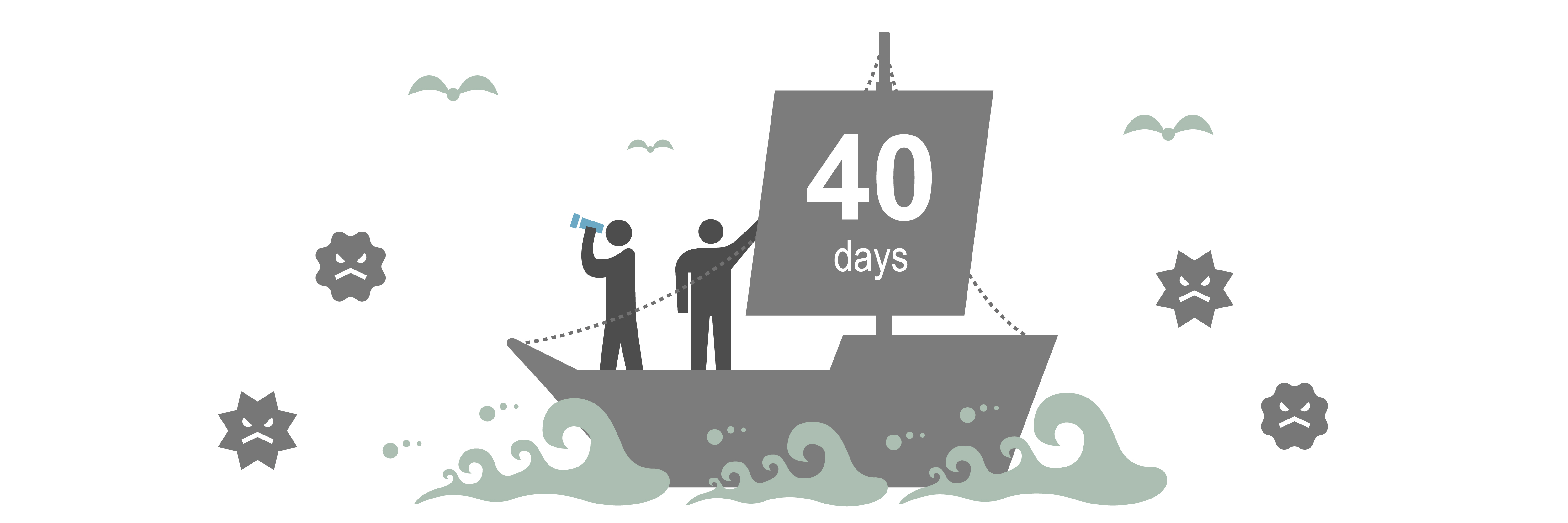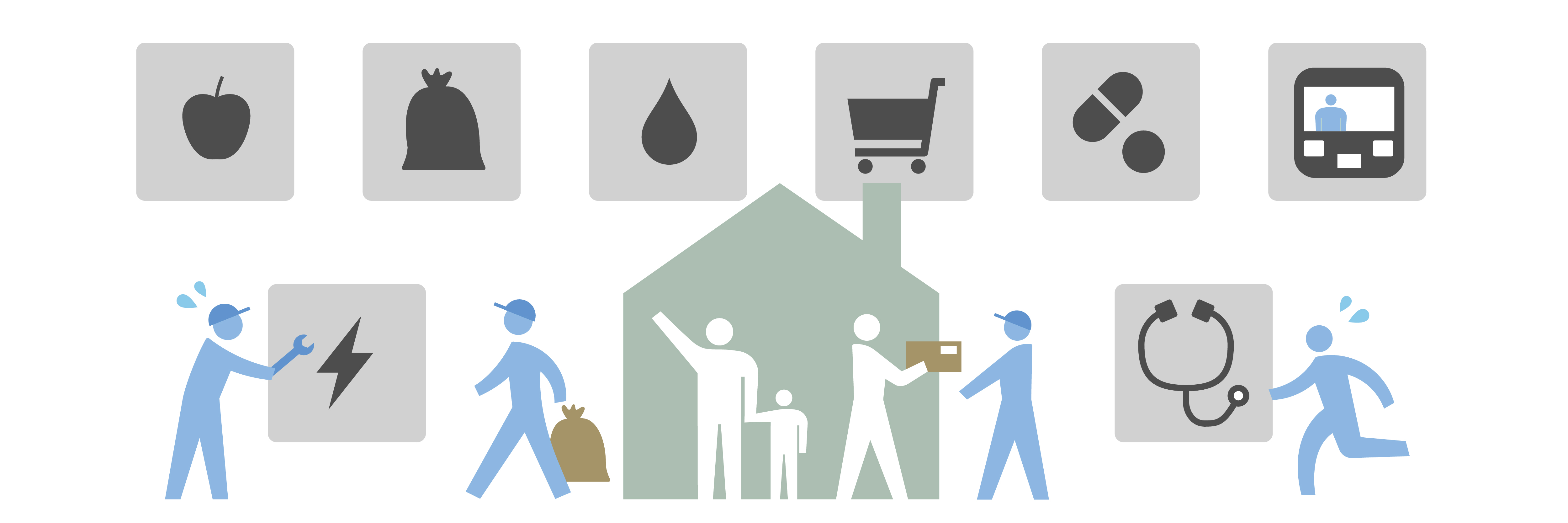I wonder how the mutation occurred, ... the mutation that transformed mild coronavirus strain into a vicious new type that would eventually kill millions of people around the world. It may have been a random misreplecation of DNA, or a gene transfer from another virus, ... or damage caused by a cosmic ray. A cosmic ray...? After having traveled across the universe for over million years, it eventually arrived on this planet and hit a DNA molecule in a coronavirus? Not completely impossible. People often talk about a huge meteor impact, fearing the one such that killed all dinosaurs. But a cosmic ray is a quantum level particle, too tiny to be visible, with barely enough energy to move a few molecules… But still It could change the courses of billions of human lives. When I came upon this possibility, I realized how vulnerable our society has actually been.
No matter what caused the mutation, our world has changed. What used to be normal has come under question.
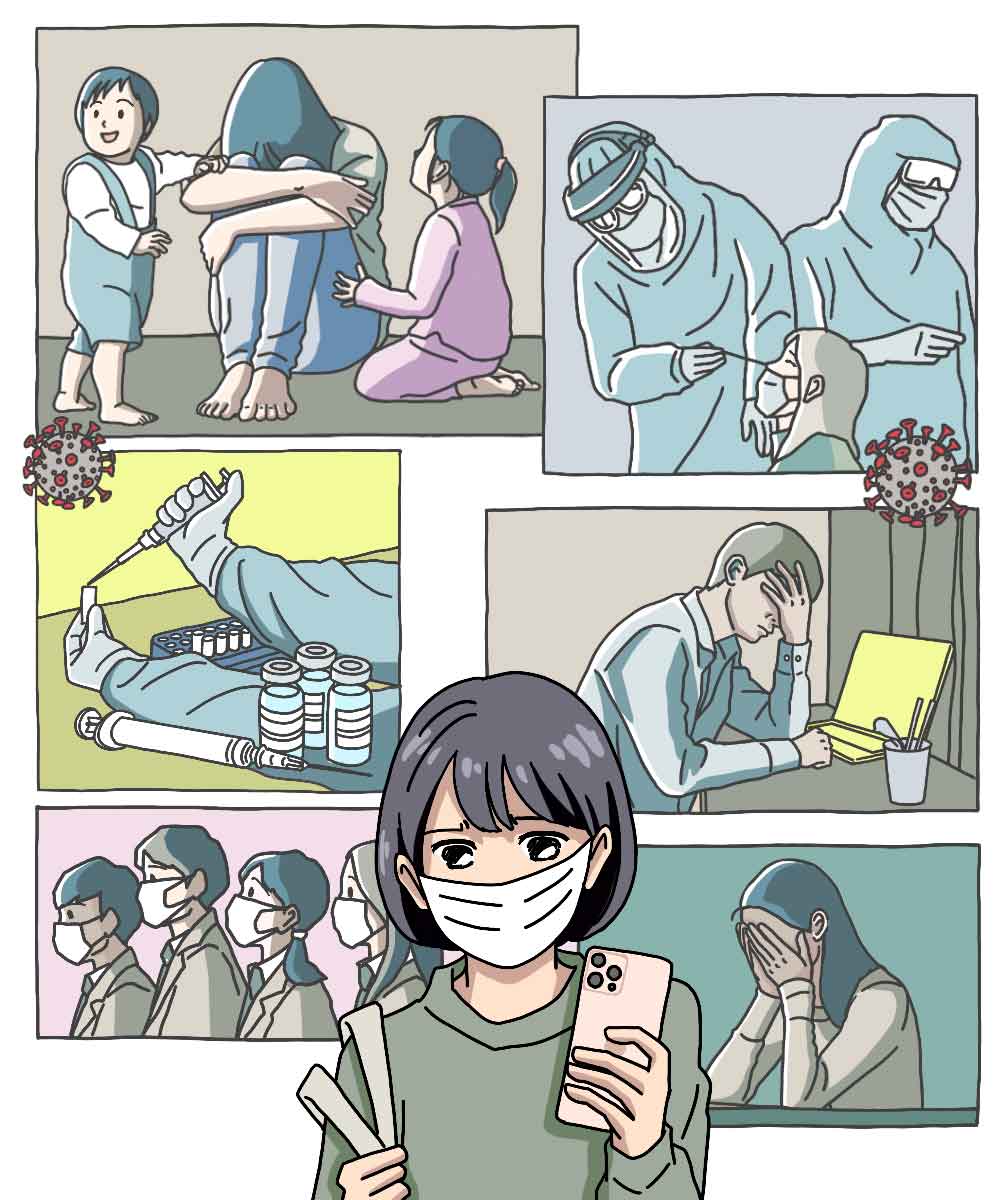
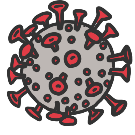



The impact of the pandemic is not limited to our physical health. Fear, worries, and daily restrictions are undermining our mental health. And it is not even limited to health problems. Differences of individual sensitivity toward risks are tearing our society apart.
Yes, the government and medical professions are taking measures, but still there must be something that each of us could do. This crisis might be a chance to make better choices in our daily lives by ourselves. Can we find a way to address social conflicts if we see things from our own personal point of view? I would like to explore this question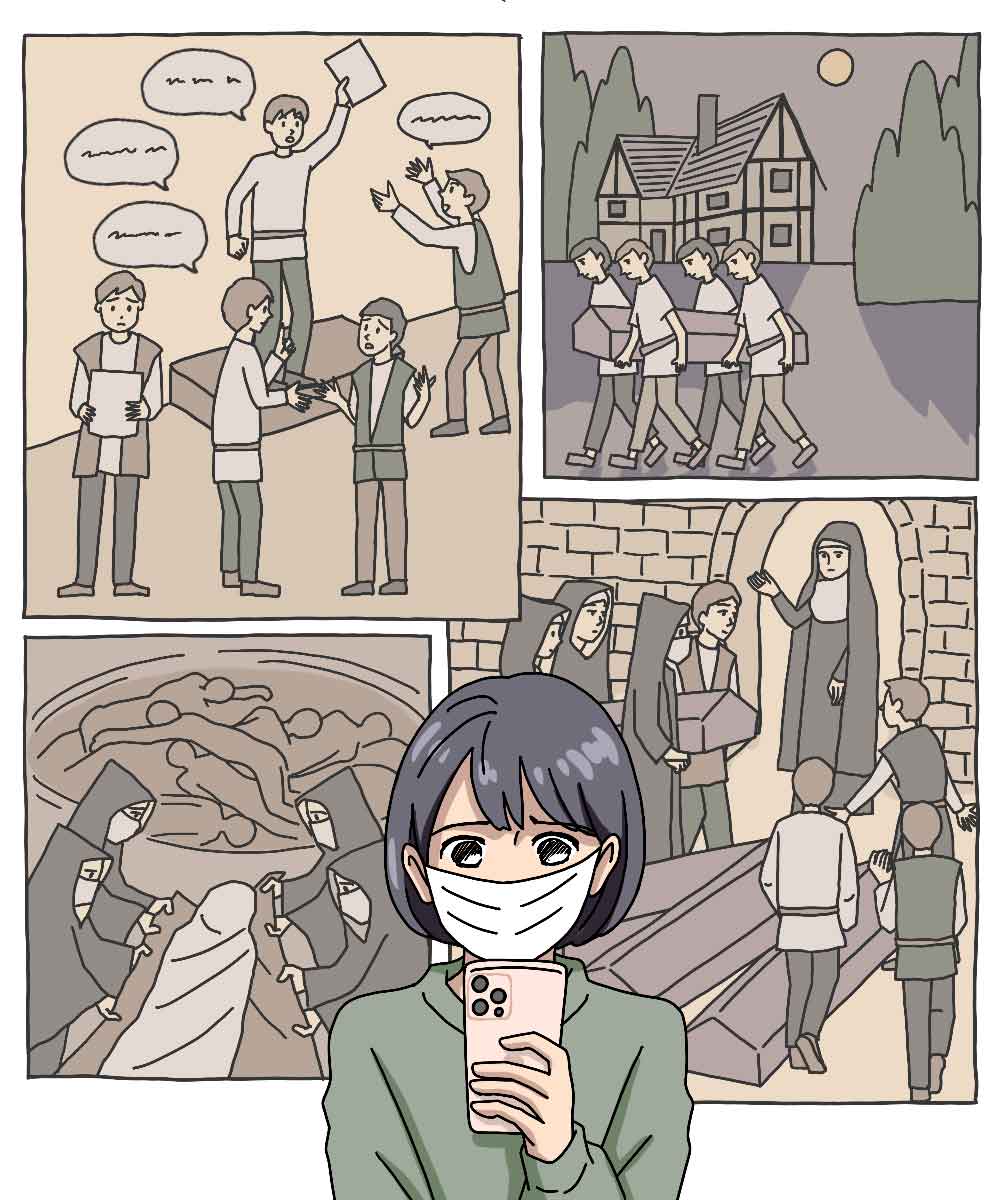
This was my first year at university. But, of course, I couldn’t physically attend classes. The campus life was totally different from what I had expected. How long will this go on? Is there anything I can do now?
I looked into past pandemics for any clues and came up with the stories about the plague, or Black Death, which swept across Europe in the Middle Ages. One third of the European population was killed…, horrible... But it wasn't just the disease itself that was frightening.

I found many sad stories of suppression and persecutions. People made up lies, believed rumors, and feared others. “A witch is crafting and spreading poison.” ”An ethnic group is poisoning wells.” In those days they didn’t know what caused the disease.[1-3]
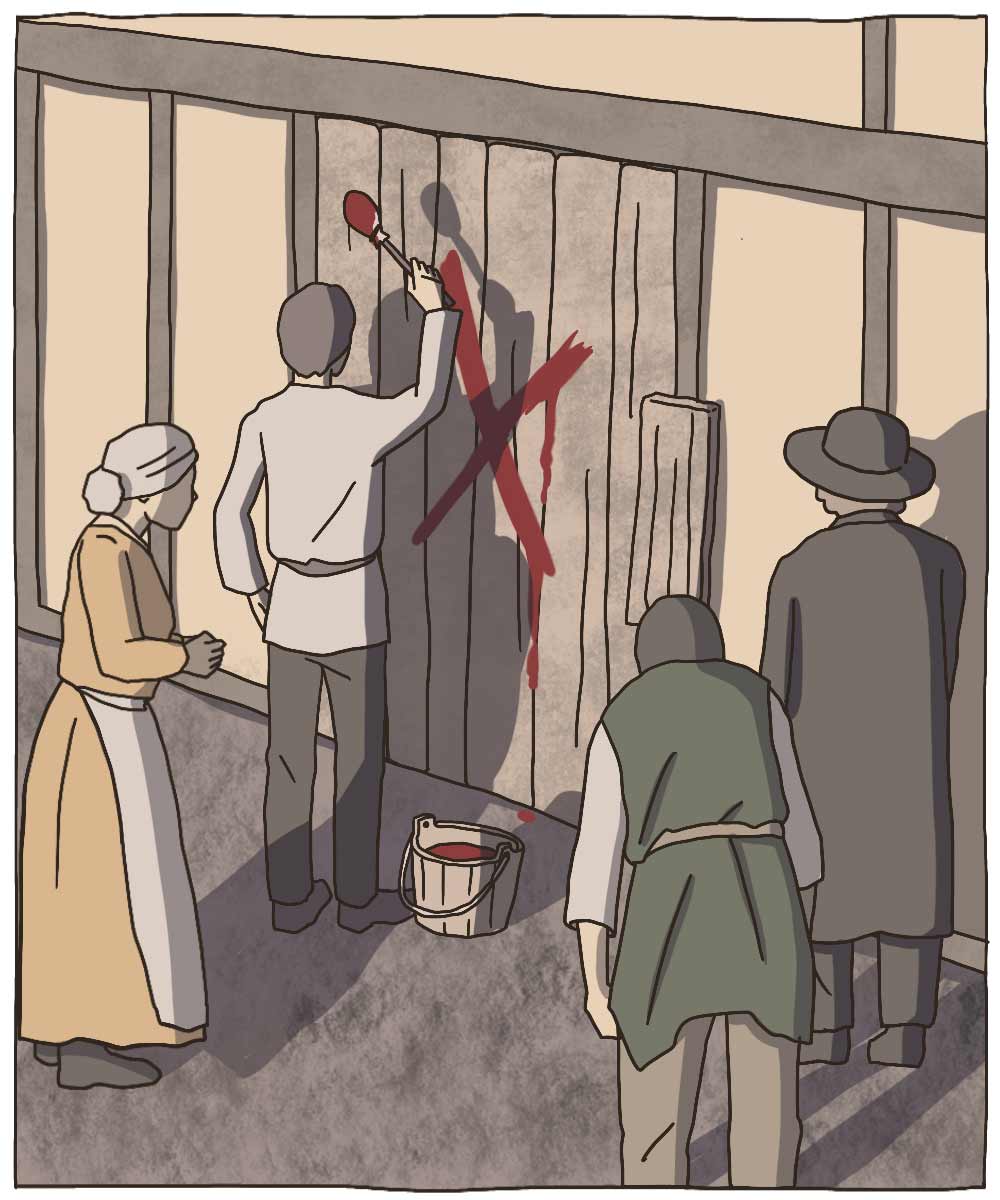
Some people marked houses’ doors with a cross as the sign of infection, which brought discrimination against patients and their family members. Sounds familiar? “Self-restraint police,” the bullying and harassment toward infected people…, our century still has something in common with the Middle Ages. [4,5]
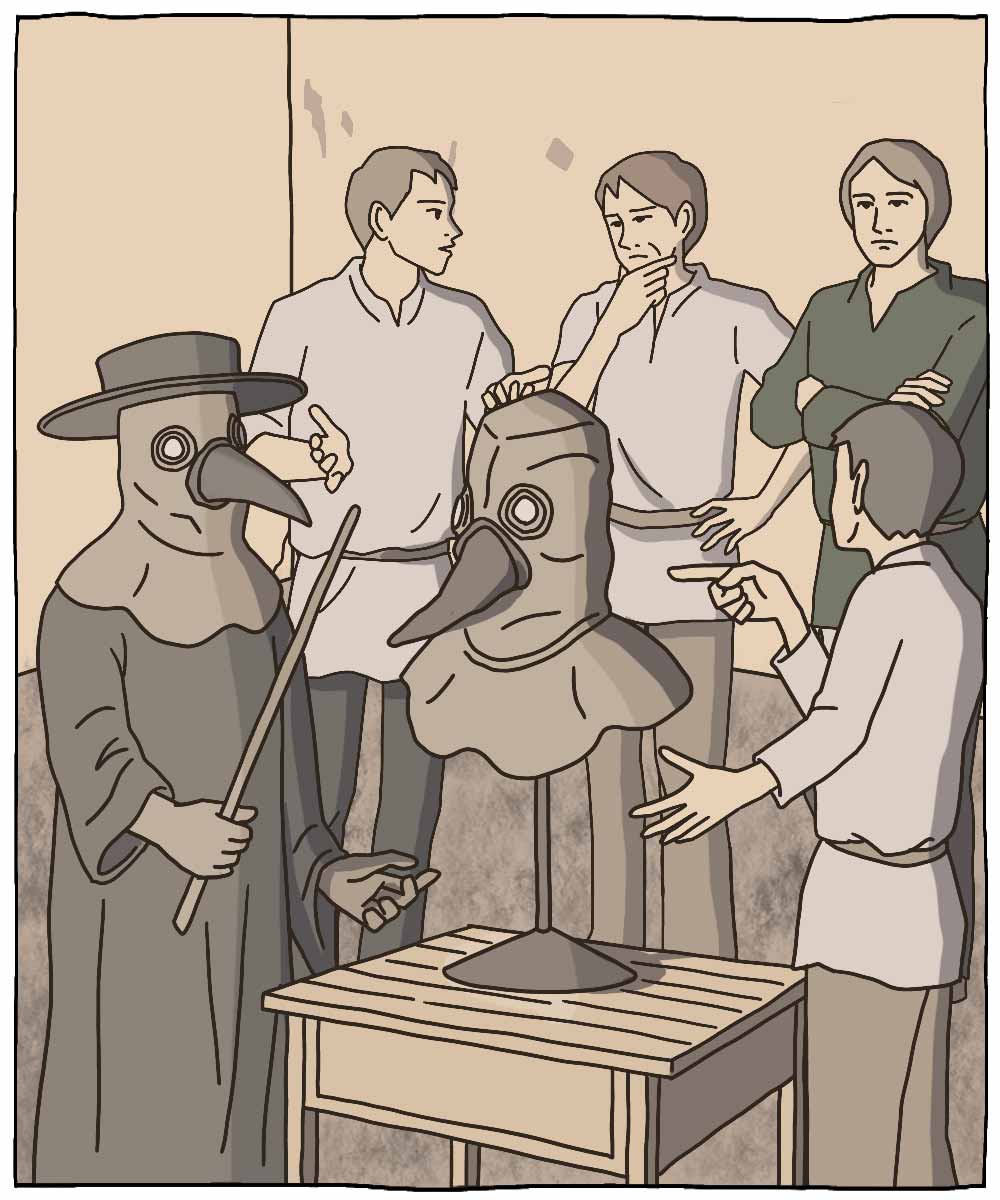
On the other hand, some people tried to find solutions through trial and error, even though they didn’t know the cause of the plague.
Some plague doctors wore a bird beak-like mask filled with spices. They wrongly suspected it was miasma, or poisonous air, that caused the plague and expected spices could remove the toxin.[6]
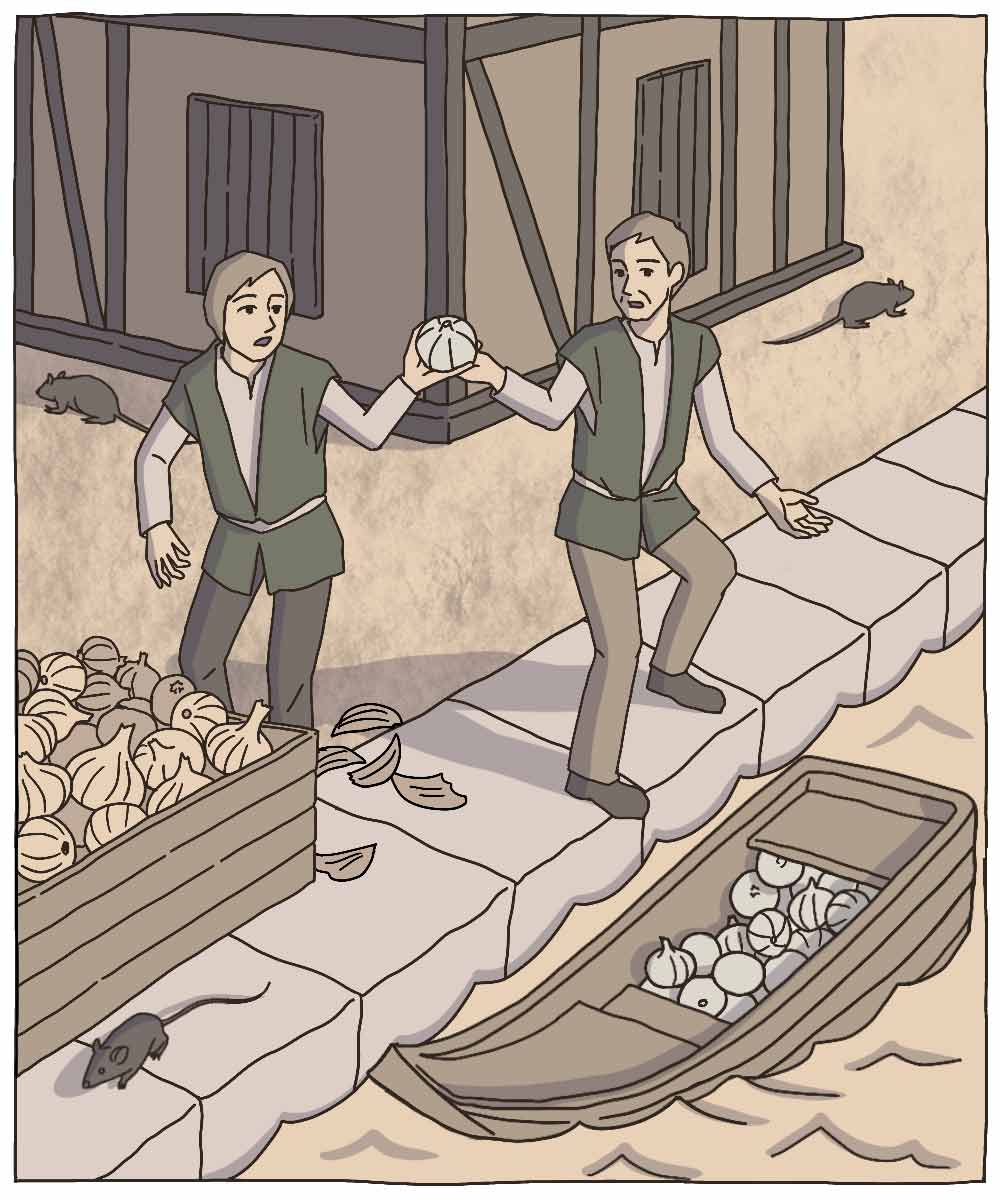
Or some people loaded boats with peeled onions and floated them down rivers and canals. They believed that the smell of onions could purify the miasma…, wrongly. But the smell might have kept the rats away. Even in the Middle Ages, when science was not developed, they tried to find ways to overcome crisis by being as creative as possible.[7,8]
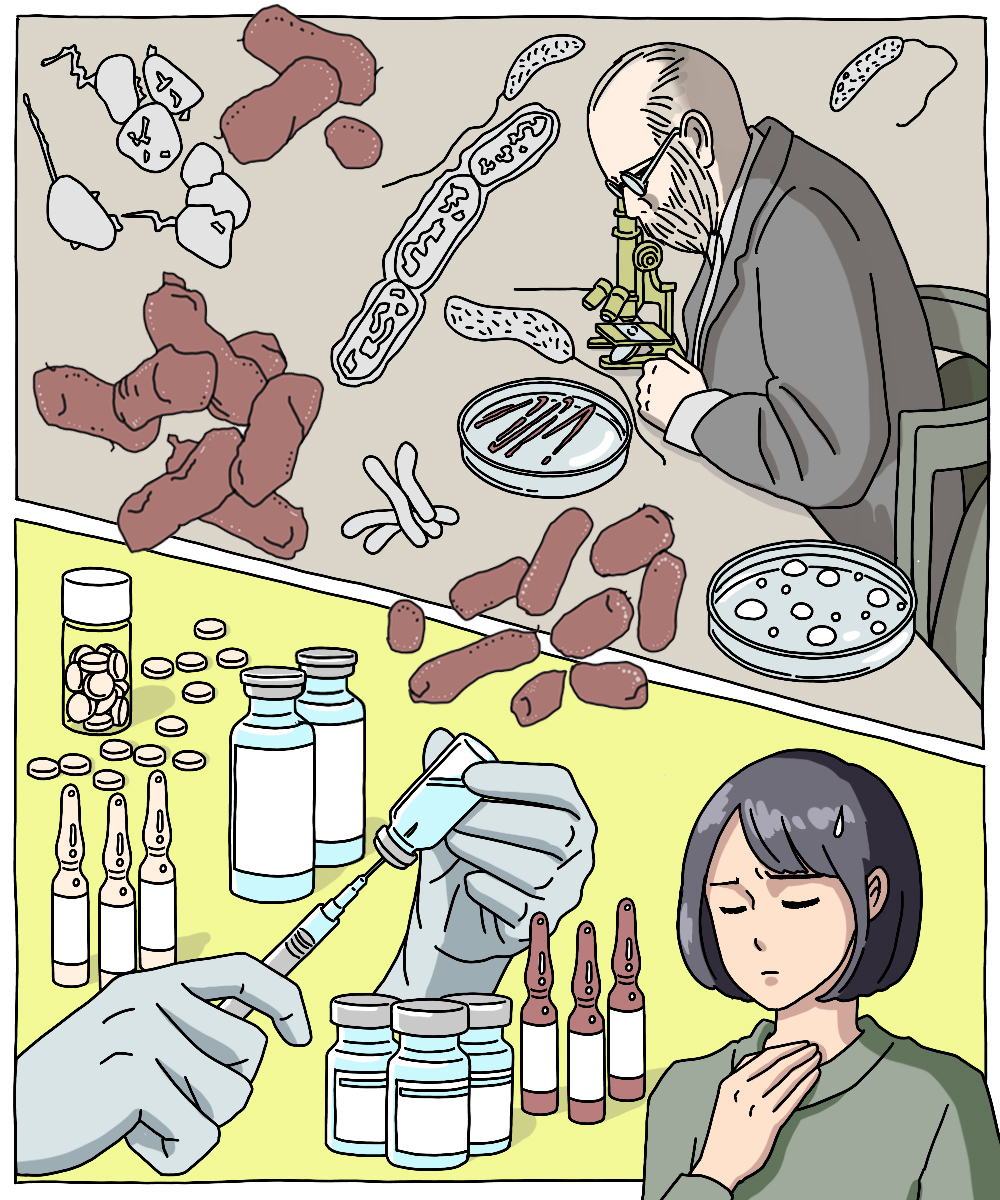
It was the 19th century that saw a great development in epidemiology. The german physician Robert Koch discovered the existence of microorganisms and established modern bacteriology. The concept of "public health" was also developed to prevent the spread of infection. It became apparent that hygiene, good nutrition, and the promotion of science education for the entire community were essential to prevent the outbreak of infectious diseases.
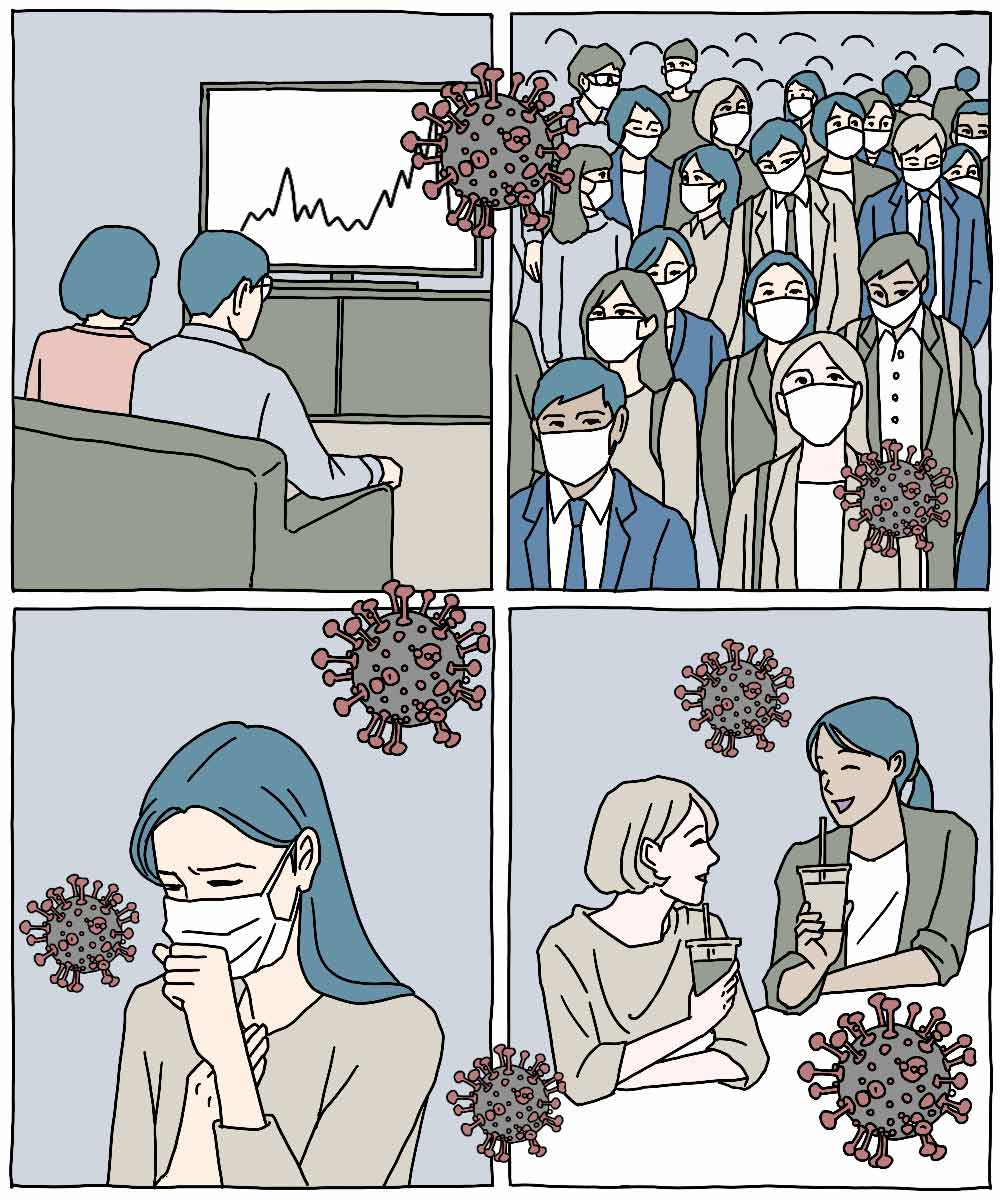
We now know that some infections, including COVID-19, are caused by viruses. Based on this knowledge, the vaccines and treatments of COVID-19 are being developed. We understand to some extent how the coronavirus spreads. But have our fears disappeared? It seems to me that confusions in our minds and in our society are ongoing.
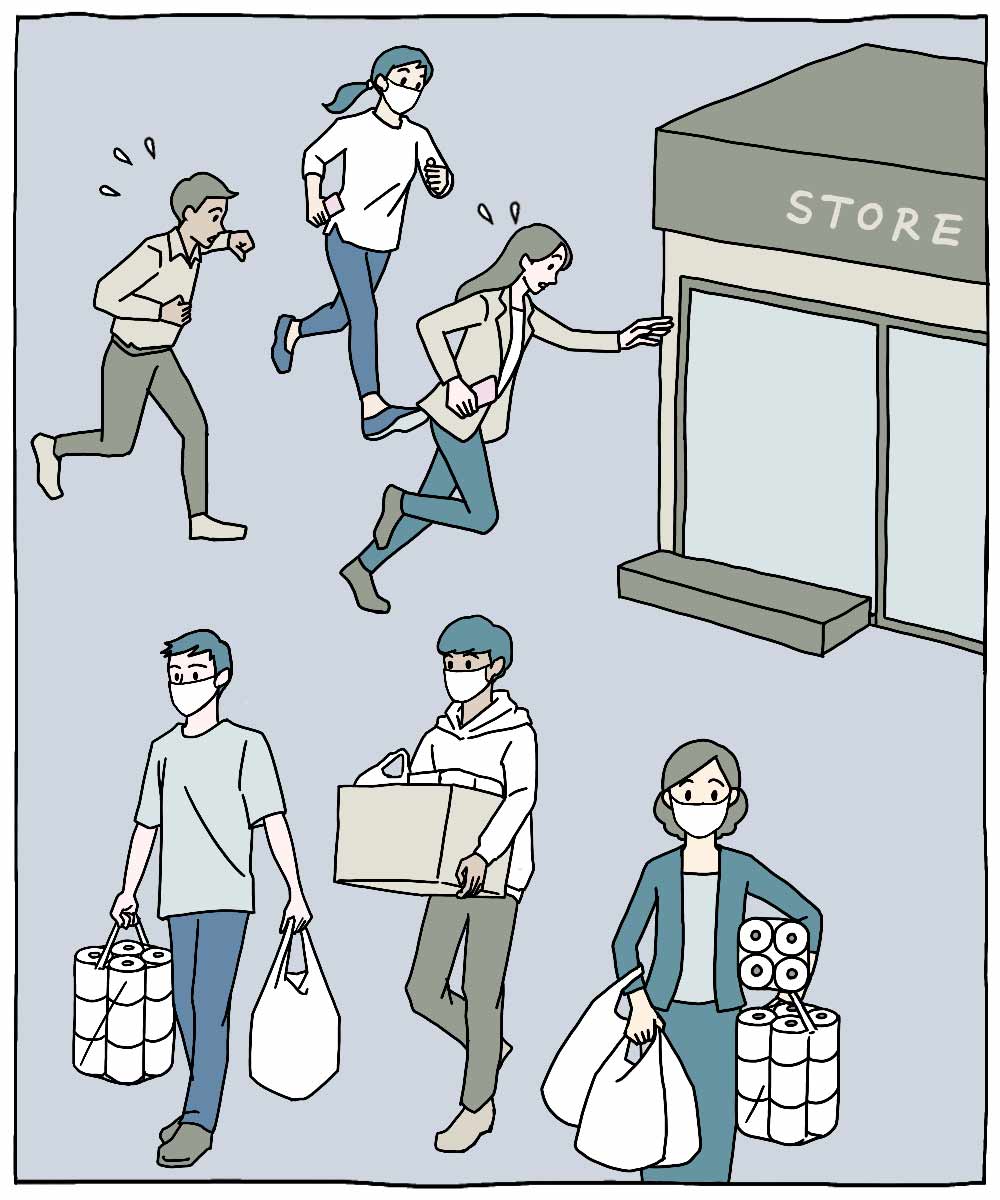
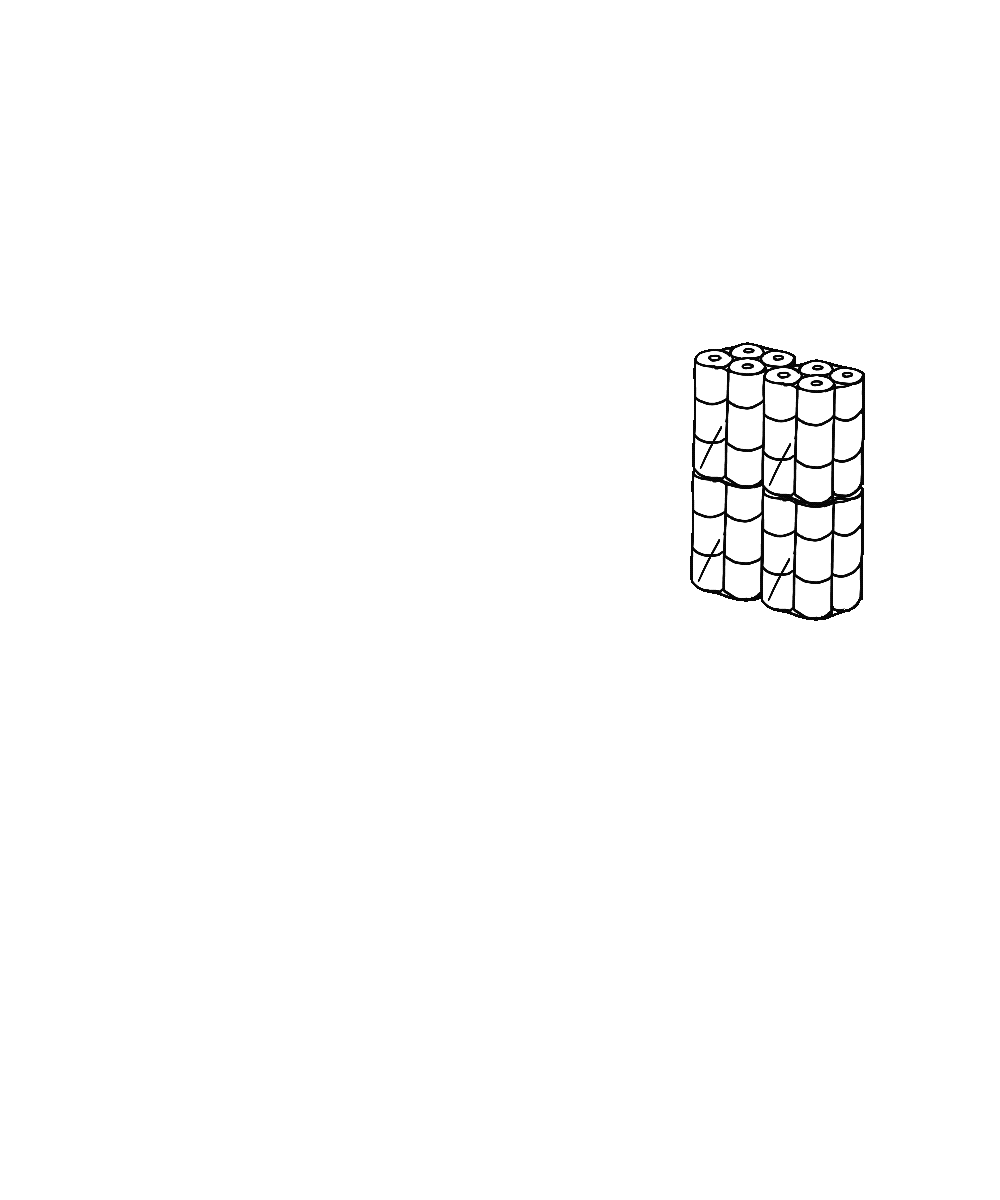
Manufacturers had assured us of supply of essential goods. But for example, face masks, toilet paper, and other items quickly sold out. Some people may have been misled by false information on the Internet and felt forced to stockpile.
The spread of rumors and fake news is referred to as “infodemic,” that is an epidemic of information.
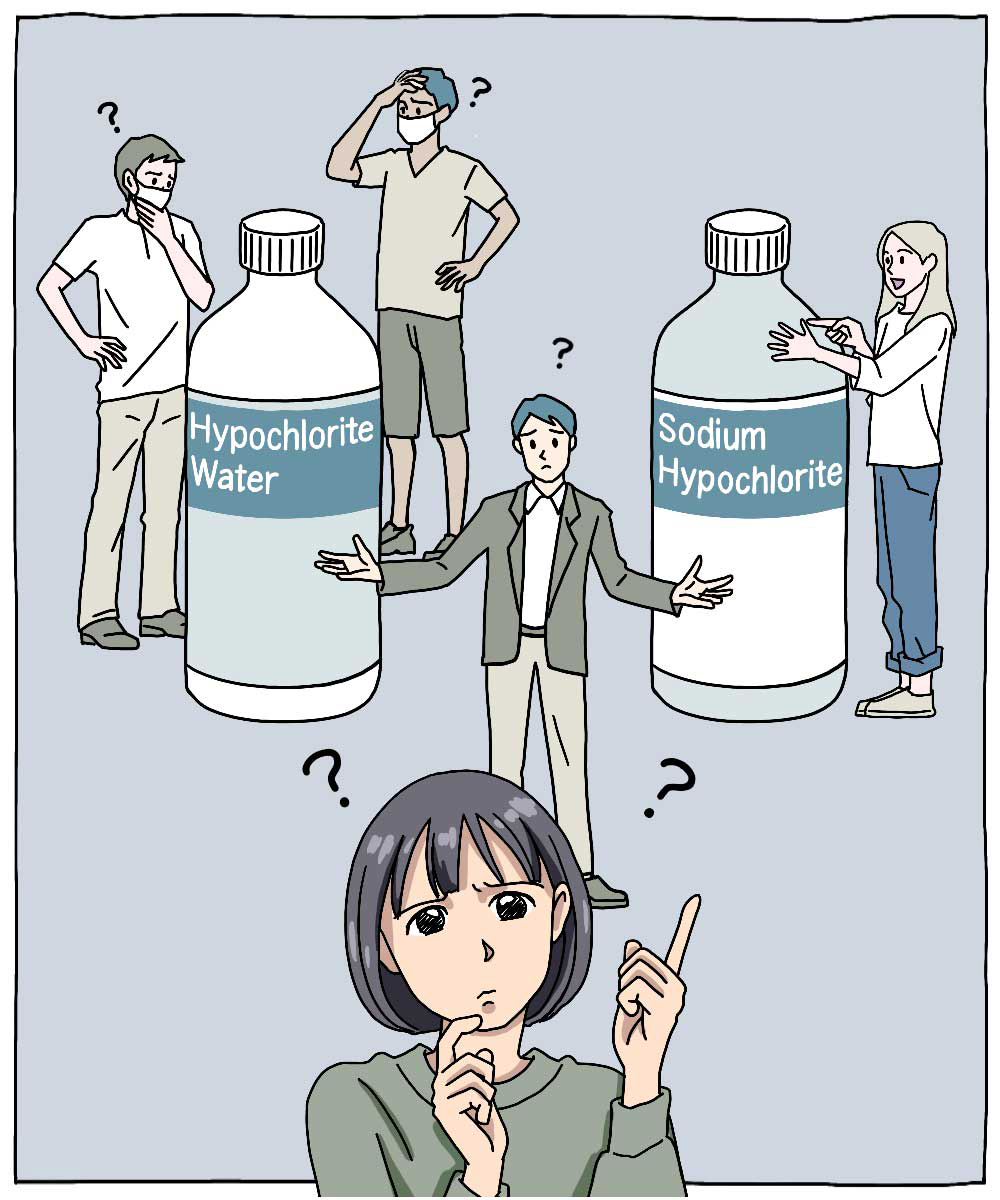
We have become hygiene-sensitive but are still ignorant enough, say, to confuse different drugs sold in similar packages. We might need to brush up our knowledge of medicine and hygiene.
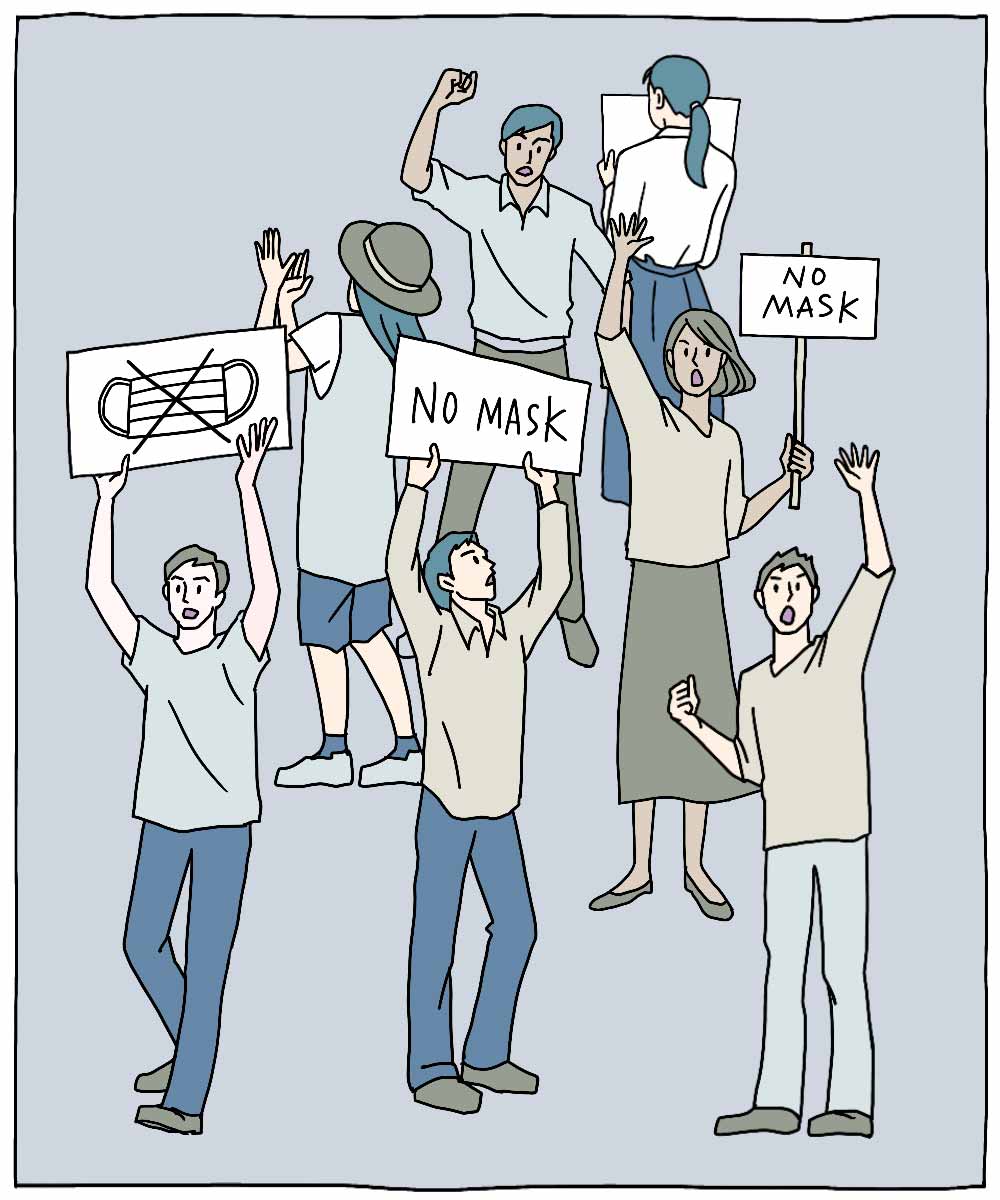
People in the Middle Ages had little information to decide the right things to do. Now we have a lot of information about the new coronavirus. The case fatality rate is not so high. Not all infected people show symptoms. The incubation period is quite long. It is a peculiar virus. However, we are overwhelmed by so much information that tells us what to do and what not to do. Contradictions and confusing information are surrounding us. We are again at a loss to decide the right things to do. That might be the reason why some people throw away their masks for their political ideology or for their own way, even though being aware of the risks.
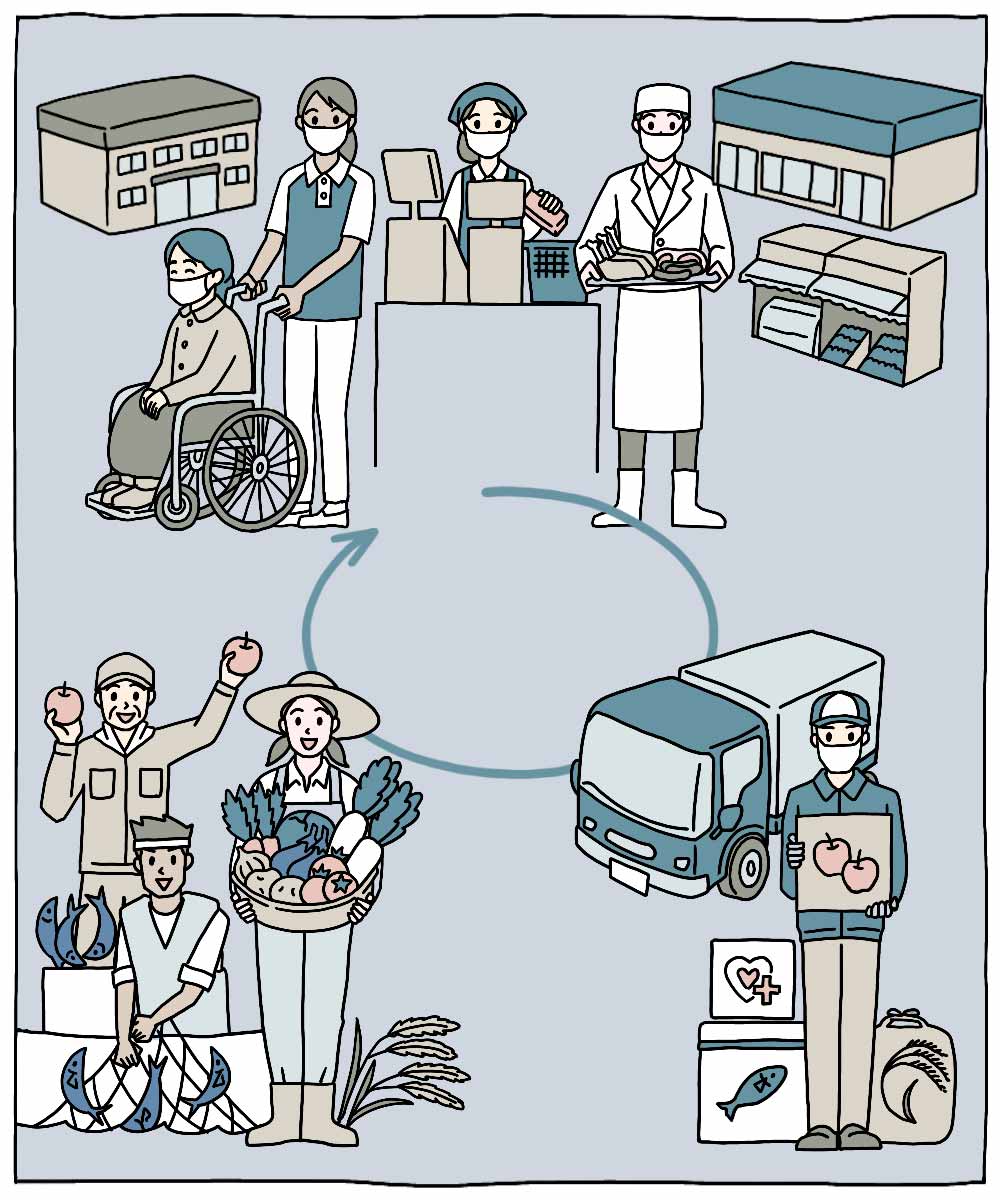
People were asked to stay home to control the infection. However, it is not how our society works. Farmers have to work outside. Couriers have to drive around. Our society depends on those who work away from home. Store clerks, restaurant workers, garbage collectors, ... the list goes on. These people are called “essential workers,” and I realized that they are the very backbone of our society.
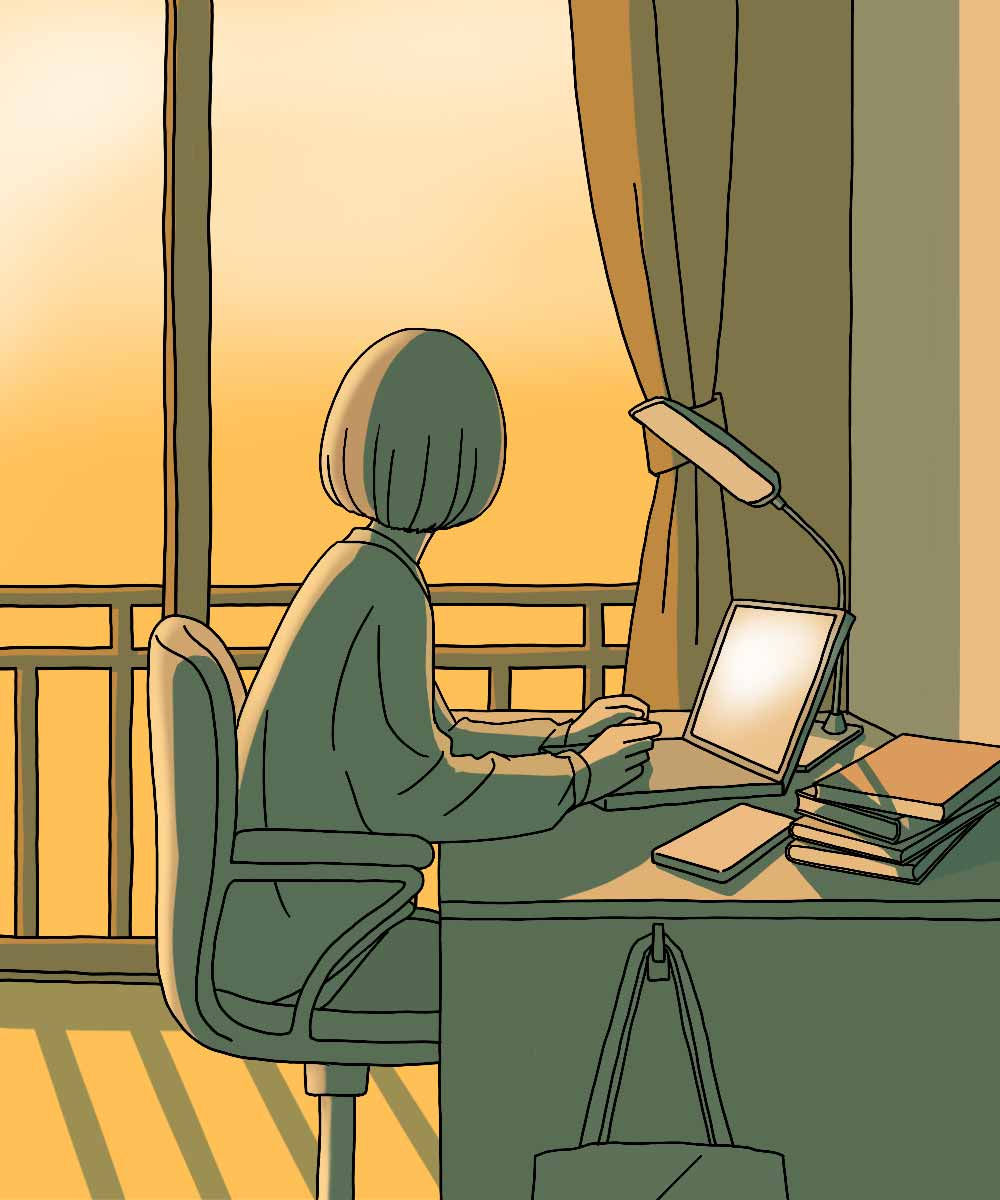
The COVID-19 pandemic is still not under control. It keeps creating many problems. Not all of them are solved by the medical approach, which is what I learned through past and present pandemics. For example, infodemic should be addressed by each of us by recalling the fact that we are so closely connected through ICT that a panic can spread around the world instantly. Don’t panic, stay calm, and be logical. These are the prescription for infodemic. A pandemic in a complex society may actually be a “disease of the whole society,” which is far beyond an individual health problem.
Our society may have become vulnerable due to technologies that tightly connect everything. A slight change in a DNA sequence in a tiny virus could shake the whole world. A single tweet by an anonymous person could trigger social instability. We are living in a peculiar world with a peculiar virus. We’ll surely have another pandemic in the future and see similar or profounder confusions. It is up to us how to take advantage of technologies.
What can I do?
What can you do?
We are confronted by such a future.
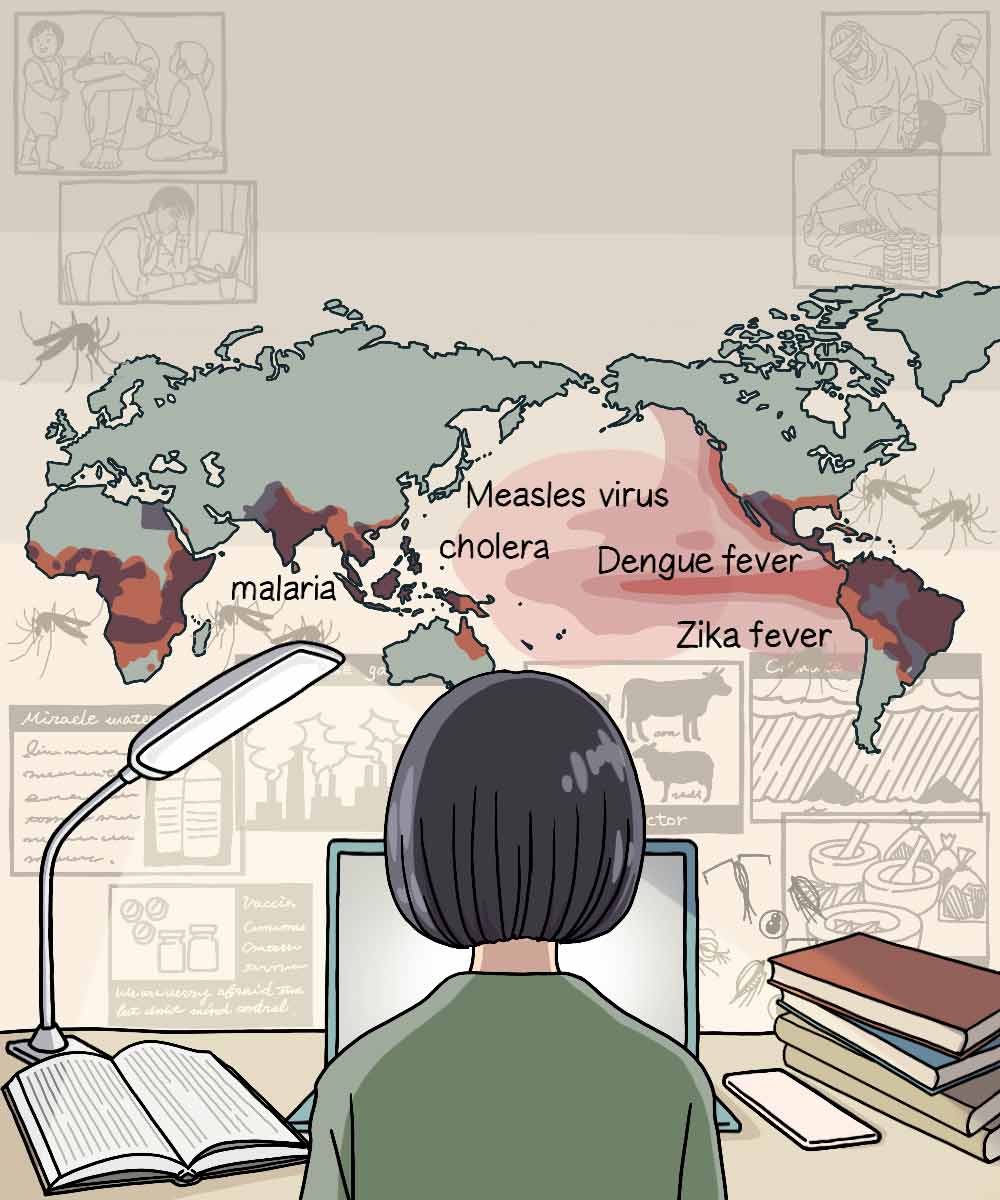
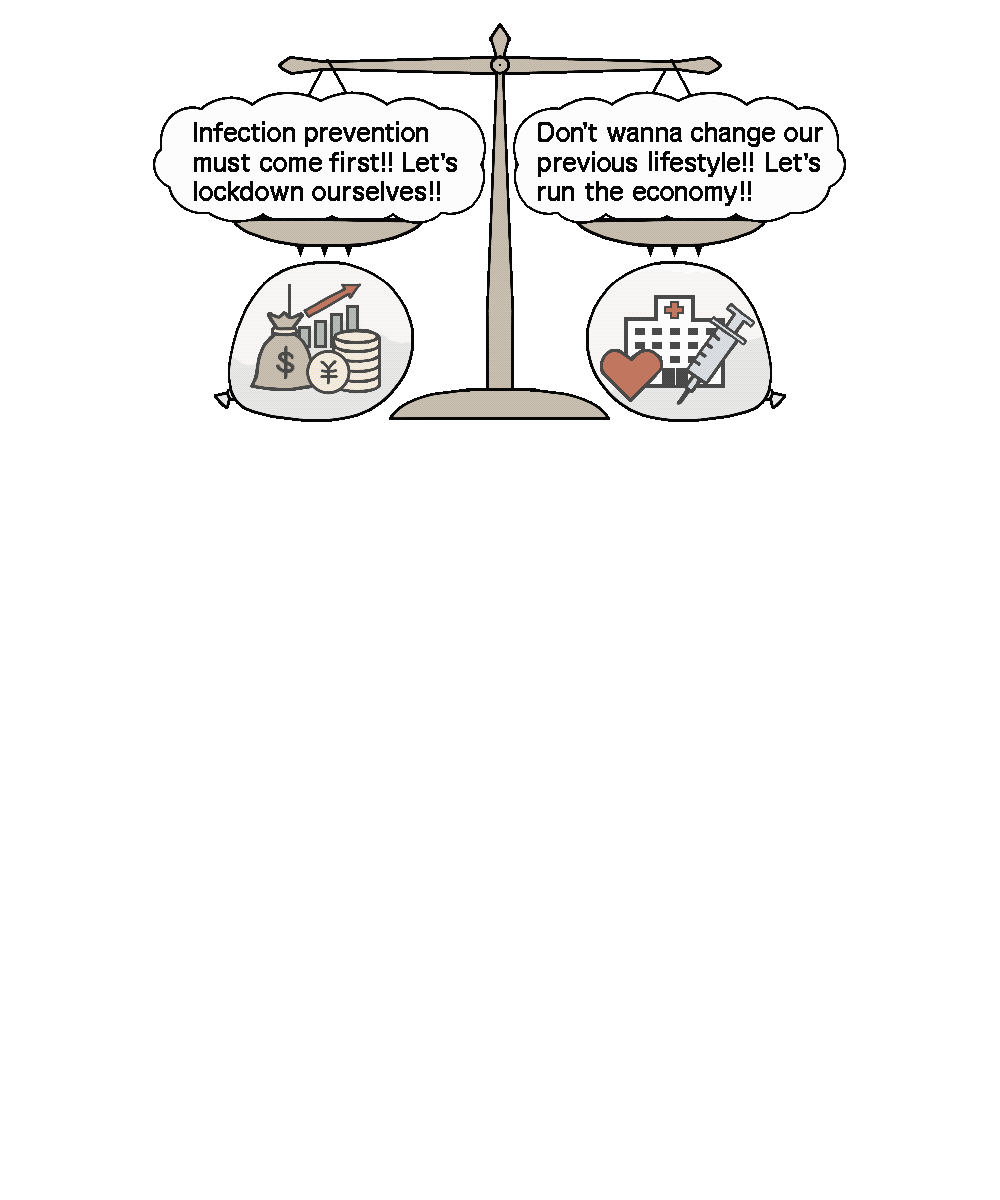
They say that global warming will change the ecosystem and increase the risk of outbreaks of unknown diseases. I now see another risk in the future. Advancing information technology will change our society further and increase the risk of outbreaks of unreliable information that will spread even faster than infectious diseases, causing confusion and anxiety. Unreliable information makes us narrow-minded, forces either-or thinking, say either economic recovery or self-restraint, and distracts us from those who are under heavy duties to support an increasingly complex society behind the scenes.
How should we deal with both risks of pandemic and infodemic?
There are four ways to address risks: avoid, transfer, reduce, and accept. I learned this framework in a class on system engineering. Can I use this to think about infection risks?
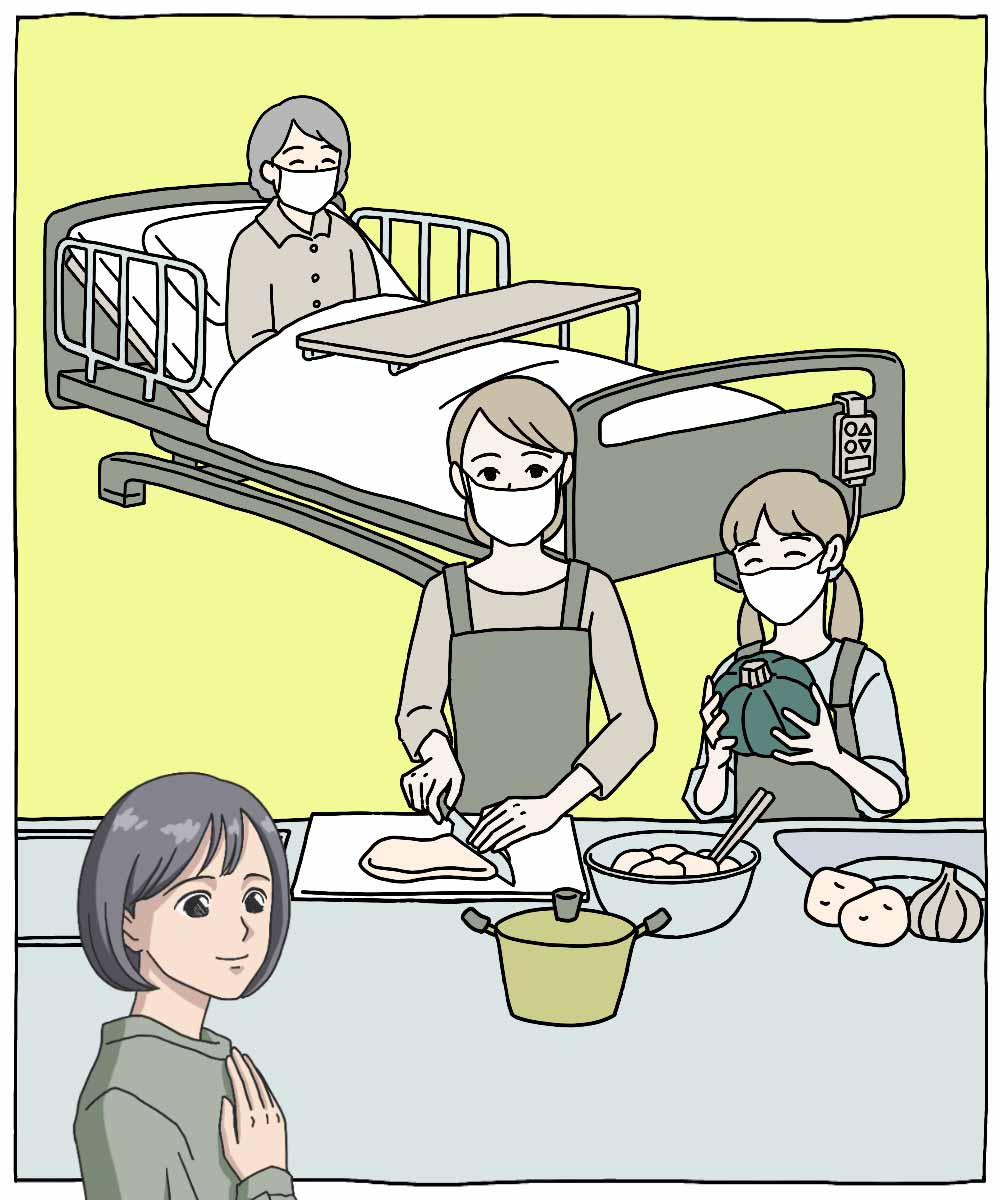
One way to address risks is to “avoid” them. More and more people around me are getting interested in cooking at home. Preventing infection by not dining out is an example of risk avoidance.
However, some people just can’t stay home due to various reasons. Or some would oppose self-quarantine because it may reduce the economic growth and bring negative impacts on social security. It is necessary to consider other options rather than just avoiding risks.
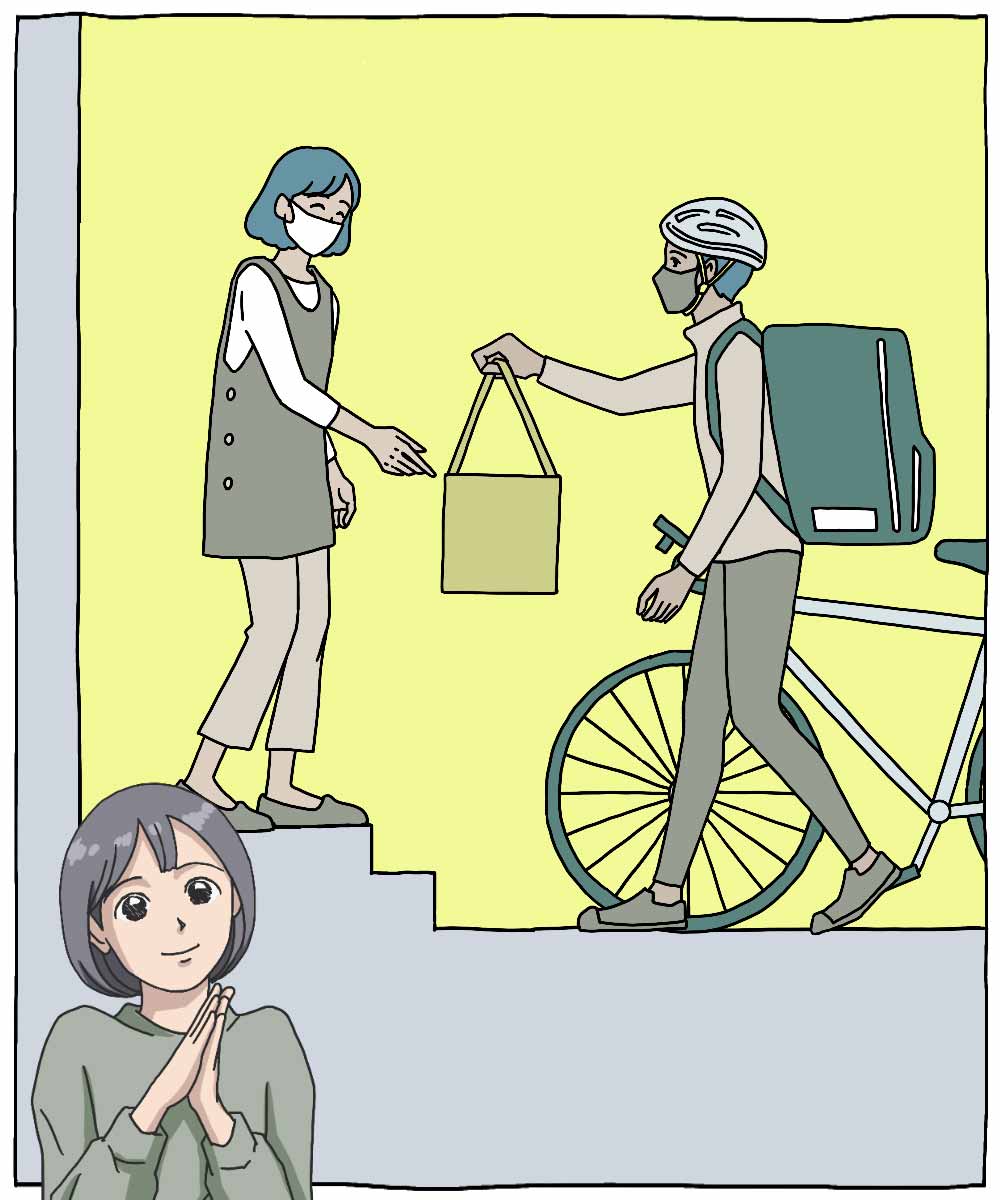
The other way is to "pass on" the risk. When you don’ t want to cook by yourself, you can use a food delivery service. In that case, you have just transferred your risk of infection to the delivery person. It is really important, I think, to understand that risks have not disappeared but transferred to others, to whom we should have deep gratitude.
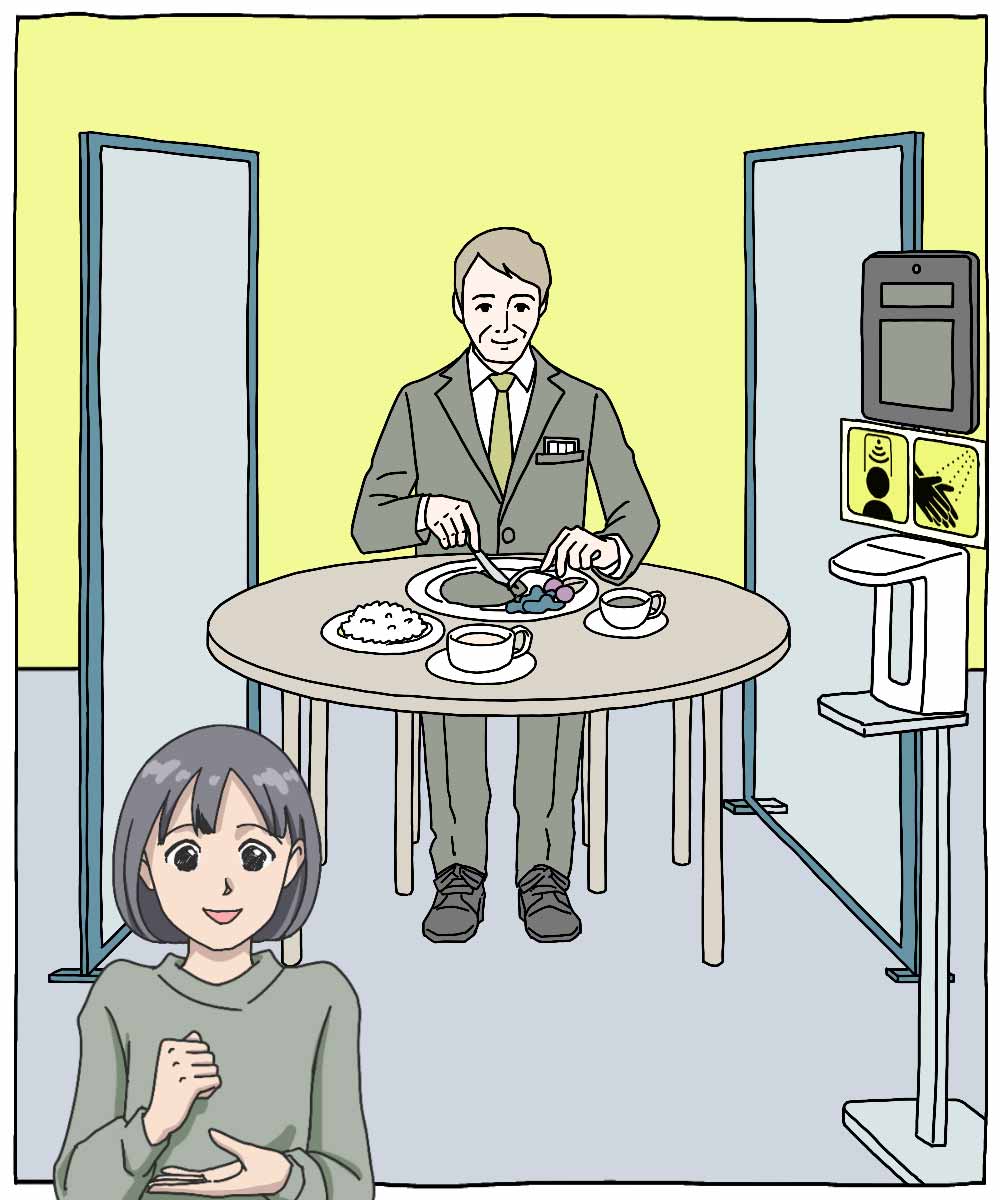
Occasionally you want to have dinner out at an excellent restaurant. That is when “risk mitigation” becomes the option you should take. The infection risk can be reduced, or mitigated, if the restaurant and customers follow proper guidelines. Risk mitigation is a approach to minimizing risks. Sometimes we can find ways to maintain economic activities even with restrictions by risk mitigation.
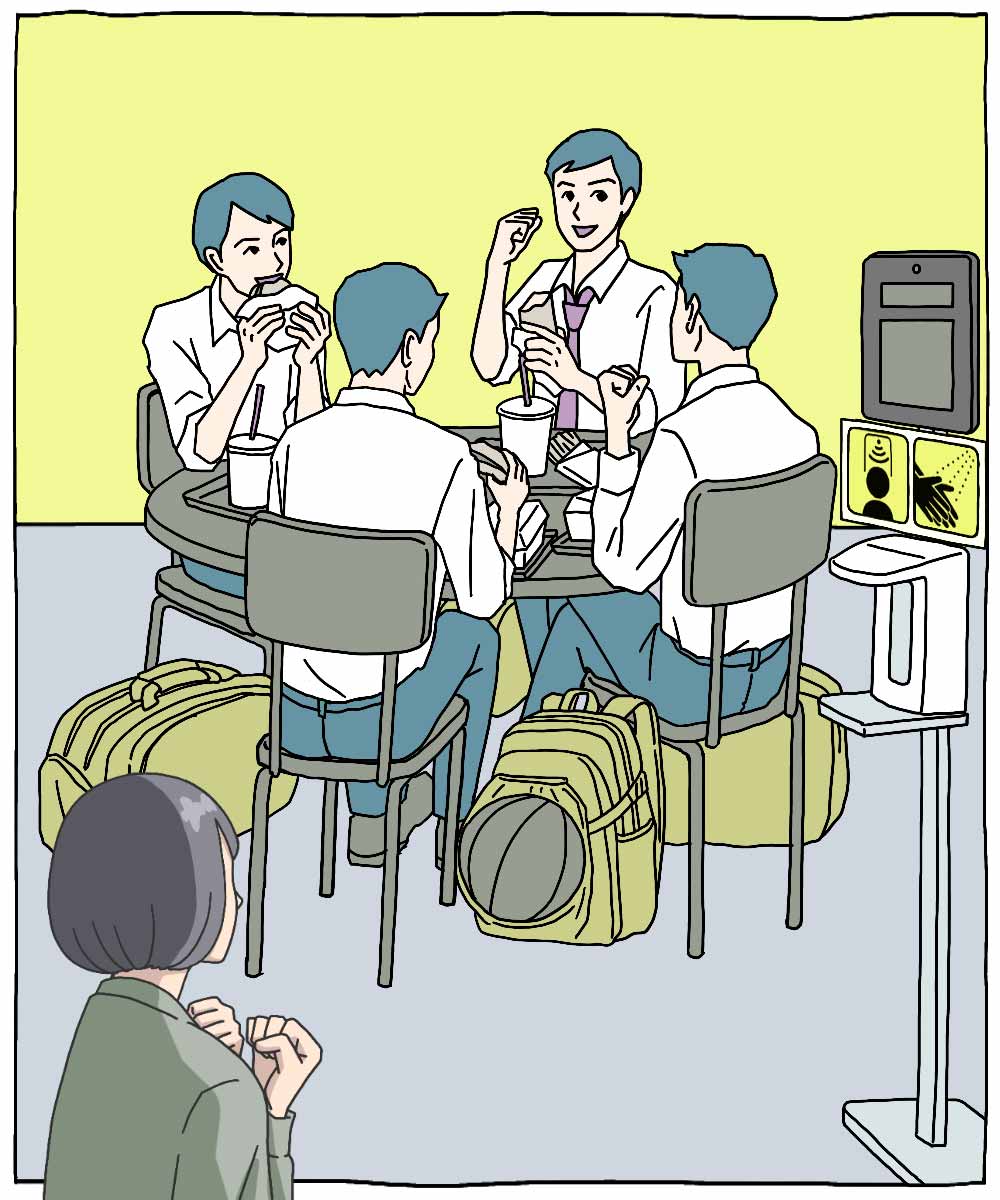
If you share a meal with a large group of friends against infection prevention guidelines, you are “accepting risks.” It is important, however, to understand you are accepting not only your own risks but also other people’s risks. If you get infected, you can spread the disease. If you are admitted to hospital, you would consume medical resources, say medical stuff, facilities, and medicines, which could have be used for other people. You should understand that what you are accepting is the risks to jeopardize other people’s lives.
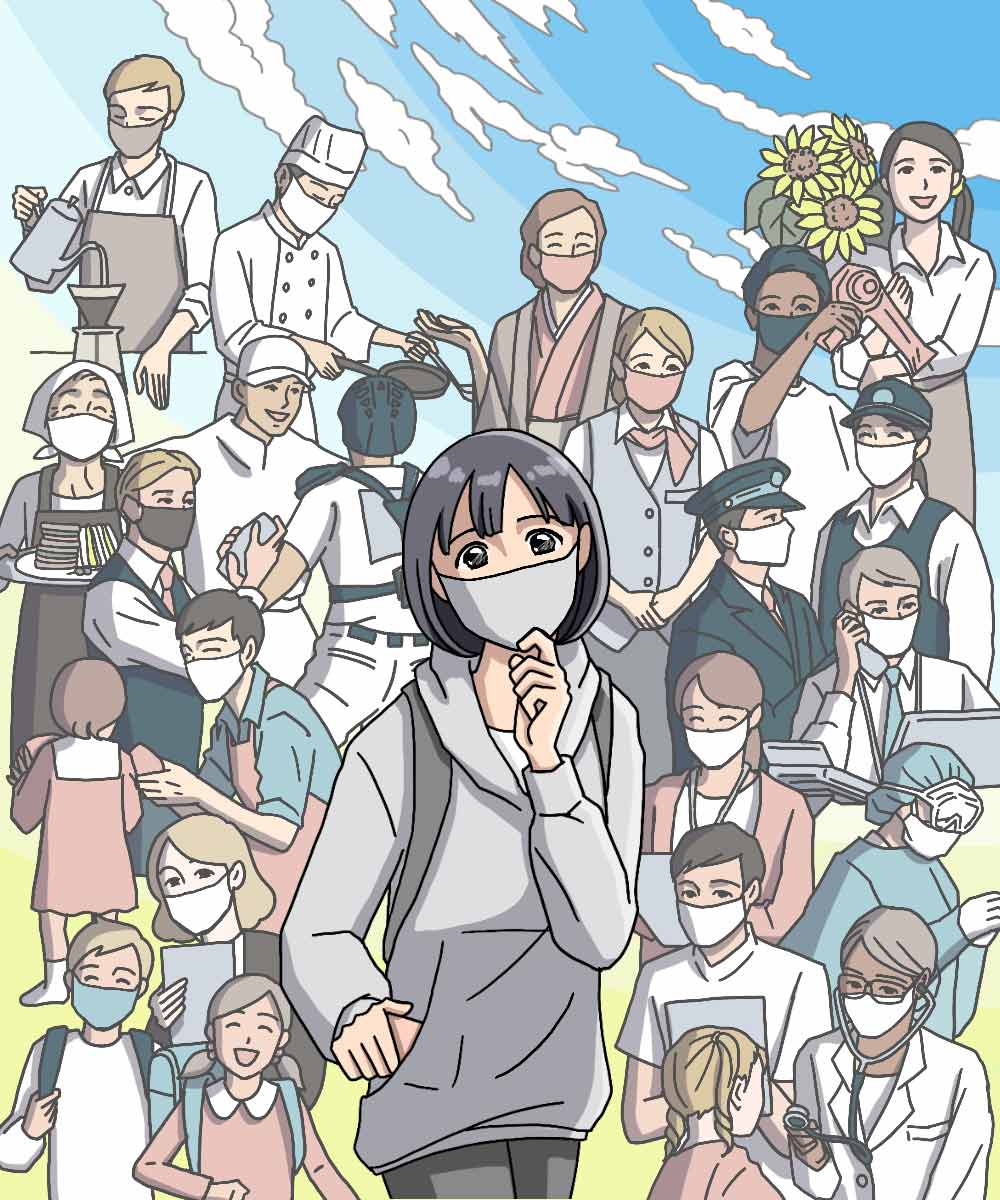
There may not be a single universal strategy to fight pandemics. No matter what option you choose, there will always be trade-offs, say the economy and healthcare, there will always be opposing views, and there will always be negative impacts.
We may have to select our own options at our own risks, but only after weighing up the risks of other people. For that, we need correct information and what prevents us from being level-headed is infodemic.
Do not believe data just because it is in front of me, instead seek correct information from various sources. Think through right actions for me but imagine the impacts brought by my actions. These are what I learned from my little study and what I will do from now on.

